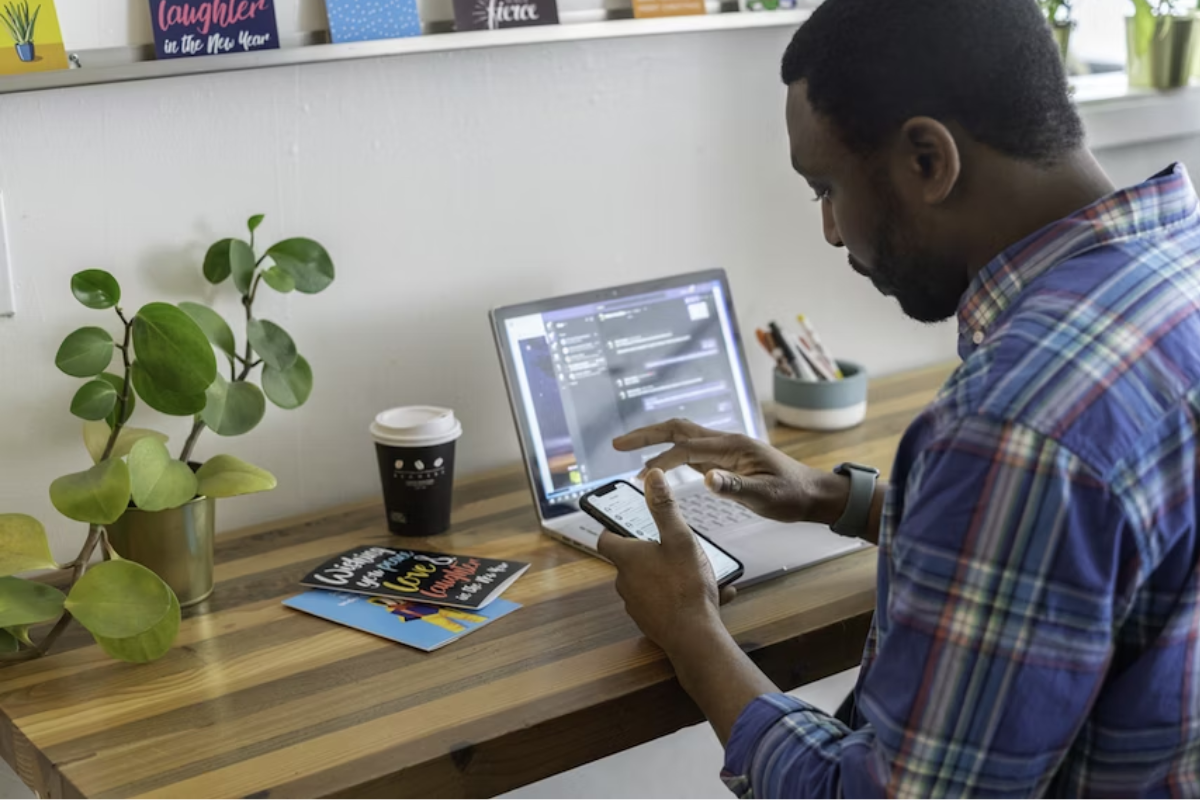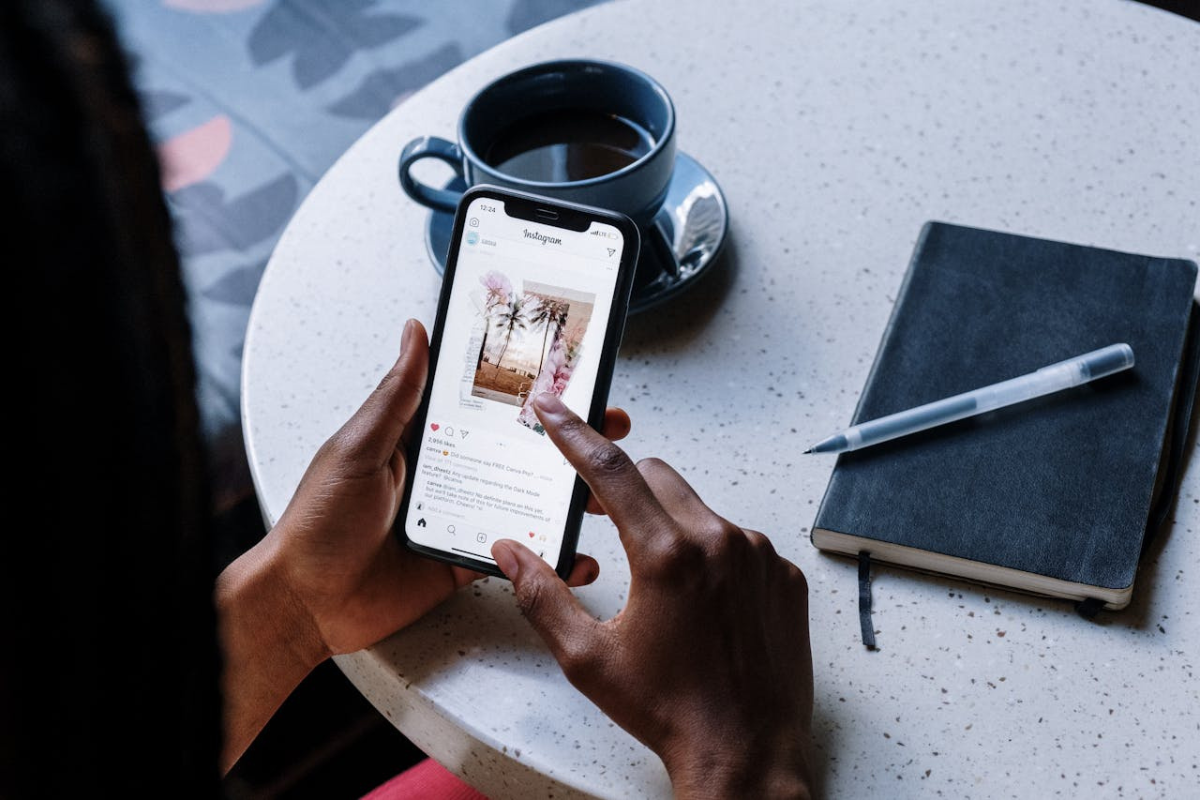Are you on LinkedIn and hoping to land your dream job?
If so, then you’re probably aware that recruiters often use LinkedIn to find potential candidates but how to respond to a recruiter on LinkedIn?
What should you say to increase your chances of getting the job?
First, it’s important to remember that recruiters receive a lot of messages every day.
So, you want to make sure that your response stands out.
Start by expressing your sincere interest in the opportunity and thanking the recruiter for reaching out to you.
You can also mention something you admire about the company or the recruiter’s work to show that you have done your research.
Next, highlight your relevant skills and experience that make you a good fit for the job.
Be specific and provide examples of how your skills can benefit the company.
You can also ask questions about the job to show your eagerness to learn more.
With these tips in mind, you’ll be well on your way to crafting a response that impresses the recruiter and increases your chances of landing the job.
Post Contents
- 1 Understanding the Role of Recruiters on LinkedIn
- 2 Optimizing Your LinkedIn Profile
- 3 Receiving a Message from a Recruiter on LinkedIn
- 4 How to Respond to a Recruiter
- 5 Expressing Interest in the Opportunity
- 6 Communicating Your Skills and Experience
- 7 Requesting More Information About the Role
- 8 Discussing Availability for Further Communication
- 9 Understanding the Company Culture
- 10 Following Up After Initial Contact
- 11 When You’re Not Interested
- 12 Key Takeaways
Understanding the Role of Recruiters on LinkedIn

LinkedIn is a platform that connects professionals with each other and with companies.
Recruiters use LinkedIn to find suitable candidates for job openings.
They search for candidates with specific skills, experience, and qualifications.
LinkedIn recruiters are an important part of the hiring process and can help you find your next job opportunity.
Here are some things you should know about recruiters on LinkedIn.
- Recruiters work for companies: Recruiters are hired by companies to find suitable candidates for job openings.
- They have a good understanding of the company’s culture, values, and requirements for the job. They are not job agents or headhunters who work independently.
- LinkedIn recruiters are different from regular recruiters: LinkedIn recruiters use the LinkedIn platform to find suitable candidates. They search for candidates who have the required skills, experience, and qualifications. They also look at candidates’ LinkedIn profiles to get a better understanding of their professional background.
- Recruiters are not your enemy: Recruiters are not trying to trick you or waste your time. They are looking for suitable candidates for job openings. If they reach out to you, it means they think you have the skills and experience required for the job. You can choose to respond or ignore their message.
- LinkedIn is a professional platform: LinkedIn is not like other social media platforms. It is a professional platform where you can showcase your skills, experience, and achievements. Recruiters use LinkedIn to find suitable candidates for job openings. Make sure your LinkedIn profile is up-to-date and showcases your professional background.
- Recruiters can help you find your next job opportunity: If you are looking for a job, LinkedIn recruiters can help you find suitable job openings. They can also provide you with information about the company and the job requirements. If you are interested in the job, you can apply for it through LinkedIn.
Overall, recruiters on LinkedIn are an important part of the hiring process.
They can help you find your next job opportunity and provide you with valuable information about the company and the job requirements.
Make sure your LinkedIn profile is up-to-date and showcases your professional background.
If a recruiter reaches out to you, it means they think you have the skills and experience required for the job. You can choose to respond or ignore their message.
Optimizing Your LinkedIn Profile

Your LinkedIn profile is your professional online presence.
It’s essential to optimize it to attract recruiters and potential employers.
Here are some tips to help you optimize your LinkedIn profile:
Use a Professional Profile Picture
Your profile picture is the first thing that recruiters and potential employers will see.
Make sure it’s a professional headshot that represents you in a positive light.
Avoid using selfies or casual photos.
Highlight Your Skills and Experience
Use your LinkedIn profile to showcase your skills and experience.
List your current and past job titles, and provide a brief description of your responsibilities and achievements. Use bullet points to make it easy to read.
Use Relevant Keywords
Recruiters use specific keywords to find appropriate candidates.
Use relevant keywords throughout your LinkedIn profile to optimize it for search.
For example, if you’re a software developer, use keywords like “Java,” “Python,” and “JavaScript” to attract recruiters looking for those skills.
Keep Your Profile Up-to-Date
Make sure your LinkedIn profile is up-to-date with your current job title and role.
Keep your experience and skills current, and add new achievements as they happen.
This will help you stay relevant and attract recruiters looking for candidates with your skills and experience.
Make Your Profile Public
Make sure your LinkedIn profile is public so that recruiters and potential employers can find you.
You can adjust your privacy settings to control what information is visible to the public, but make sure your profile is visible so that recruiters can find you.
Optimizing your LinkedIn profile is essential to attract recruiters and potential employers.
Use these tips to optimize your profile and increase your chances of landing your dream job.
Receiving a Message from a Recruiter on LinkedIn
Congratulations! You have received a message from a recruiter on LinkedIn.
This is a great opportunity to potentially land a new job or learn more about a company you are interested in.
Here are a few things to keep in mind when responding to the recruiter’s message:
First, make sure to read the message carefully.
Take note of any specific job titles or requirements mentioned in the message.
This will help you determine if you are a good fit for the role and will also show the recruiter that you are paying attention to the details.
Next, make sure to address the recruiter by their name in your response.
This shows that you are taking the time to personalize your message and are not just sending a generic response.
When greeting the recruiter, use a friendly and professional tone.
A simple “Hello [Recruiter’s Name],” or “Hi [Recruiter’s Name],” will suffice.
In your message, express your interest in the opportunity and ask any questions you may have about the role or the company.
This shows that you are engaged and eager to learn more.
Finally, make sure to thank the recruiter for reaching out to you and for considering you for the opportunity.
This shows that you are grateful for the opportunity and appreciate the recruiter’s time and effort in contacting you.
By following these simple tips, you can make a great impression on the recruiter and increase your chances of landing the job or learning more about the company.
Good luck!
How to Respond to a Recruiter

When a recruiter contacts you on LinkedIn, it’s important to respond in a clear, polite, and respectful manner. Here are some tips to help you respond effectively:
Thank Them for Reaching Out
Start by thanking the recruiter for reaching out to you.
This shows that you appreciate their time and effort in trying to connect with you.
You can say something like, “Thank you for contacting me about the [position/job opportunity]. I appreciate you reaching out to me.”
Be Clear and Specific in Your Response
Make sure your response is clear and specific.
If you’re interested in the position, let the recruiter know.
If you’re not interested, politely decline.
Avoid being vague or non-committal, as this can create confusion and waste everyone’s time.
Provide Examples of Your Experience and Qualifications
If you’re interested in the position, highlight some of your relevant experience and qualifications.
This can help the recruiter understand why you’re a good fit for the job.
Be specific and provide examples to support your claims.
Thank Them Again and Be Respectful
End your response by thanking the recruiter again for their time and consideration.
Even if you’re not interested in the position, it’s important to be respectful and professional.
You never know when you might cross paths with the recruiter again in the future.
Here’s an example response:
“Hi [Recruiter’s Name],
Thank you for contacting me about the [position/job opportunity].
I appreciate you reaching out to me.
After reviewing the job description, I’m definitely interested in learning more about the position.
My experience in [relevant experience] and [relevant qualification] makes me a strong candidate for the role.
I would love to discuss the opportunity further.
Thank you again for your time and consideration.
Best regards,
[Your Name]”
Expressing Interest in the Opportunity
When responding to a recruiter on LinkedIn, it’s important to show enthusiasm and express your interest in the opportunity.
This can help you stand out from other candidates and increase your chances of getting the job.
Here are some tips on how to do it:
- Start with a thank you: Begin your message by thanking the recruiter for reaching out to you about the job opportunity. This shows that you appreciate their efforts and are interested in learning more.
- Express your enthusiasm: Let the recruiter know that you are excited about the opportunity and intrigued by the company. Use positive language to convey your enthusiasm and show that you are genuinely interested in the position.
- Highlight your relevant skills: Emphasize your skills and experience that make you a good fit for the job. This can help the recruiter see that you are a strong candidate and increase your chances of getting an interview.
- Ask for more information: Show that you are open to learning more about the opportunity by asking the recruiter for additional details. This can help you get a better sense of the job requirements and whether it’s a good fit for you.
- Be respectful: Always maintain a professional tone and avoid making demands or coming across as entitled. Remember that the recruiter is doing you a favor by reaching out to you, so be polite and respectful in your response.
By expressing your interest in the opportunity and showing your enthusiasm for the position, you can increase your chances of getting hired and stand out from other candidates.
So don’t be afraid to let the recruiter know that you are excited about the job and eager to learn more!
Communicating Your Skills and Experience
When responding to a recruiter on LinkedIn, it’s important to effectively communicate your skills and experience.
This will help the recruiter determine if you’re a good fit for the role they’re trying to fill.
Here are some tips to help you effectively communicate your skills and experience:
- Highlight your skills: Make sure to highlight relevant skills that you possess that are required for the role. If you have experience in a particular software or technology, make sure to mention it.
- Emphasize your experience: Emphasize your experience in your response to the recruiter. This will help the recruiter understand your level of expertise in the field.
- Include your qualifications: Mention your qualifications in your response to the recruiter. This could include any degrees or certifications you have earned.
- Share your accomplishments: Share any accomplishments you’ve achieved in your previous roles. This will help the recruiter understand your level of success in your career.
- Tailor your response to the job description: Make sure to tailor your response to the job description. Use keywords from the job description in your response to help the recruiter understand how your skills and experience align with the role.
Remember to be friendly and professional in your response to the recruiter.
Keep your response brief and to the point, while still effectively communicating your skills and experience.
Requesting More Information About the Role

When a recruiter reaches out to you about a potential job opportunity, it is natural to have questions about the role.
Requesting more information is a great way to get a better understanding of the position and determine if it is a good fit for you.
Here are some tips on how to request more information about the role in a professional and friendly manner:
Review the Job Description
Before reaching out to the recruiter, review the job description to see if any of your questions can be answered there.
Take note of the job title, responsibilities, and required qualifications.
This will help you ask more specific questions and show the recruiter that you have a genuine interest in the role.
Ask for More Information
When drafting your message to the recruiter, start by expressing your gratitude for the opportunity and your interest in the role.
Then, ask for more information about the position.
Be specific about what you would like to know, such as the day-to-day responsibilities, the company culture, or the team dynamics.
By asking thoughtful questions, you demonstrate your enthusiasm and interest in the role.
Show Your Transferable Skills
When requesting more information, it is also a good idea to highlight your transferable skills.
Let the recruiter know how your experience and skills align with the job requirements and how you can add value to the team.
This will show the recruiter that you are a strong candidate for the position and increase your chances of getting an interview.
Remember, when requesting more information about the role, it is important to be professional and friendly.
By showing your interest and asking thoughtful questions, you can make a great impression on the recruiter and increase your chances of landing the job.
Discussing Availability for Further Communication
When responding to a recruiter on LinkedIn, it’s important to make it clear that you’re interested in further communication.
This includes being available for phone calls, chats, or any other form of communication that the recruiter may prefer.
One way to convey your availability is to include your phone number in your response.
This makes it easy for the recruiter to contact you directly and can help move the conversation forward.
Be sure to mention that you’re available to talk at a convenient time for both you and the recruiter.
If you’re not comfortable sharing your phone number right away, you can offer to schedule a call or chat through LinkedIn messaging.
This allows you to control the timing and format of the conversation.
It’s also important to be clear about your availability.
If you’re currently employed, let the recruiter know your preferred times for communication.
This can help avoid any conflicts with your current job.
When discussing availability, it’s important to be friendly and accommodating.
Remember, the recruiter is trying to help you find a job, so it’s in your best interest to make the process as easy as possible.
Overall, discussing your availability for further communication is an important step in responding to a recruiter on LinkedIn.
By being clear and friendly, you can help move the conversation forward and increase your chances of landing a great job opportunity.
Understanding the Company Culture

When responding to a recruiter on LinkedIn, it’s important to understand the company culture of the organization they represent.
This will help you determine if the company is a good fit for you and if you align with their values and work environment.
Here are some tips on how to understand the company culture:
- Research the company: Before responding to the recruiter, take some time to research the company. Visit their website, read their mission statement, and look for any news articles or press releases about the company. This will give you a better understanding of their values and what they stand for.
- Check out their social media: Many companies have a social media presence, and this can give you a glimpse into their company culture. Look for posts about company events, employee recognition, and community involvement. This can give you an idea of what it’s like to work for the company and if their culture aligns with your values.
- Ask questions: When the recruiter reaches out to you, don’t be afraid to ask questions about the company culture. Ask about their work environment, team dynamics, and what they value in their employees. This will help you determine if the company is a good fit for you.
- Look for reviews: There are many websites where current and former employees can leave reviews of their company. Look for reviews of the company you are considering and read about the experiences of others. Keep in mind that reviews can be biased, so take them with a grain of salt.
Understanding the company culture is an important part of deciding if a company is a good fit for you.
By doing your research and asking questions, you can get a better idea of what it’s like to work for the company and if their values align with yours.
Following Up After Initial Contact
Congratulations! You’ve made initial contact with a recruiter on LinkedIn.
Now what? It’s important to follow up in a timely manner to keep the conversation going and show your interest in the opportunity.
Here are some tips on how to follow up after your initial contact:
Ask Follow-Up Questions
After your initial conversation with the recruiter, it’s important to ask follow-up questions to show your interest and learn more about the opportunity.
Some questions you could ask include:
- What are the next steps in the hiring process?
- Can you provide more information about the company and the role?
- What qualities are you looking for in a candidate?
- What is the timeline for filling this position?
Asking these types of questions will not only show your interest, but also help you better understand the opportunity and whether it’s a good fit for you.
Keep in Touch
It’s important to keep in touch with the recruiter throughout the hiring process.
Send a quick message every few weeks to check in and show your continued interest in the opportunity.
You could also share any relevant updates or accomplishments in your career that might make you a stronger candidate.
Next Steps
After your initial contact with the recruiter, be sure to clarify what the next steps are in the hiring process.
This will give you a better idea of what to expect and how to prepare.
Some potential next steps could include:
- A phone or video interview
- An in-person interview
- An assessment or test
- A reference check
Make sure you understand what the next steps are and what is expected of you.
This will help you prepare and give you a better chance of success.
Following up after your initial contact with a recruiter is key to keeping the conversation going and showing your interest in the opportunity.
By asking follow-up questions, keeping in touch, and clarifying next steps, you can increase your chances of landing your dream job.
When You’re Not Interested
If you receive a message from a recruiter on LinkedIn and you’re not interested in the opportunity, it’s important to respond in a respectful and polite manner.
Here are some tips on how to do it:
Acknowledge the Message
When you receive a message from a recruiter, it’s always a good idea to acknowledge it, even if you’re not interested.
This shows that you respect their time and effort in reaching out to you.
You can simply say something like:
“Thank you for reaching out to me about this opportunity. I appreciate your interest in my profile.”
Be Honest
It’s important to be honest when responding to a recruiter, even if you’re not interested in the opportunity.
Don’t make false promises or lead them on.
Instead, be upfront and let them know that you’re not interested. You can say something like:
“Thank you for considering me for this opportunity, but I’m not interested at this time.”
Offer to Stay in Touch
If you’re not interested in the opportunity but still want to maintain a relationship with the recruiter, offer to stay in touch.
This shows that you value their connection and may be open to future opportunities.
You can say something like:
“Although I’m not interested in this opportunity, I would be happy to stay in touch for future opportunities.”
Keep It Professional
When responding to a recruiter, it’s important to keep your tone professional and respectful.
Avoid being rude or dismissive, as this can damage your reputation and future opportunities.
Remember that recruiters are professionals, and treating them with respect can go a long way in building a positive relationship.
In summary, when responding to a recruiter on LinkedIn, it’s important to be respectful, honest, and professional.
Acknowledge the message, be honest about your level of interest, offer to stay in touch, and keep your tone professional.
By following these tips, you can maintain a positive relationship with recruiters and keep the door open for future opportunities.
Key Takeaways
When responding to a recruiter on LinkedIn, keep in mind that first impressions matter.
Be prompt in your response and express your sincere interest in the opportunity.
It’s important to strike a balance between being professional and friendly.
Here are some key takeaways to keep in mind:
- Respond promptly: When a recruiter reaches out to you, respond as soon as possible. This shows that you’re interested in the opportunity and eager to learn more.
- Express your interest: Let the recruiter know that you’re interested in the opportunity and excited to learn more about the role. This will show that you’re enthusiastic and engaged.
- Keep it professional: While it’s important to be friendly and approachable, it’s also important to maintain a professional tone. Avoid using slang or informal language in your response.
- Be specific: When responding to a recruiter, be specific about your experience and qualifications. This will help the recruiter determine whether you’re a good fit for the role.
- Ask questions: Don’t be afraid to ask questions about the opportunity. This will show that you’re engaged and interested in learning more about the role.
By following these key takeaways, you can make a positive impression on recruiters and increase your chances of landing your dream job.






























